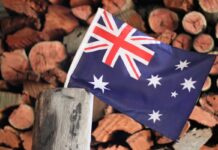SOFTSWISS is “encouraged” by Brazil’s gambling regulation direction as its casino platform and sportsbook undergo the certification process to enter the market, which is being conducted by an authorised testing laboratory.
Last year, the igaming technology provider obtained GLI-19 and GLI-33 certifications to give it a solid foundation to meet Brazil’s regulatory requirements.
However, since the Brazilian government has set out specific standards, SOFTSWISS consulted certified laboratories to identify key areas, including player registration, Know Your Customer protocols and responsible gambling practices.
“We view Brazil as a highly promising region and are encouraged by the progress in local regulation as well as by the proactive efforts of local authorities to refine and enhance the existing legal framework,” Andrey Starovoitov, Co-CEO at SOFTSWISS.
Regarding registration, players must provide a CPF number (Brazilian Individual Taxpayer Registry Number), which is verified by a system to stop users from creating multiple accounts and make sure accurate personal details are provided, reducing fraud risks.
SOFTSWISS noted that the measure will help to prevent underage gambling, protect self-excluded individuals, shield operators from bonus abuse through account multiplicity, and enable the government to monitor tax compliance on winnings.
As for KYC, the igaming technology firm stated that Brazil could implement a liveness check for additional customer verification, “necessitating technical upgrades to most existing platforms” but also ensuring “higher security and compliance”.
Regarding responsible gambling, SOFTSWISS remarked that the Brazilian market’s regulator is formulating comprehensive requirements to help players control their play. Platforms must have features seamlessly integrated to protect users and promote a safe gambling environment.
Starovoitov added: “The stringent requirements for gambling software emphasise responsible gambling and public protection, which regulators aim to balance effectively with business interests.
“It’s clear that the Brazilian Government is working diligently to maintain the appeal of white labelling within this market, ensuring a healthy environment for both operators and players.”











